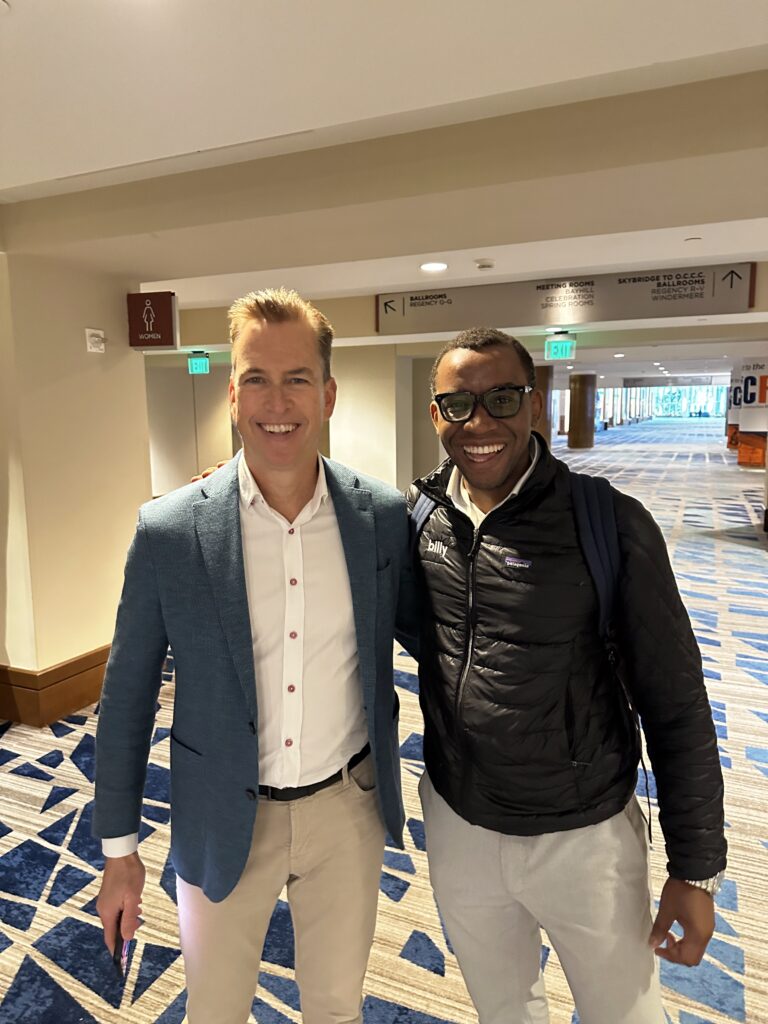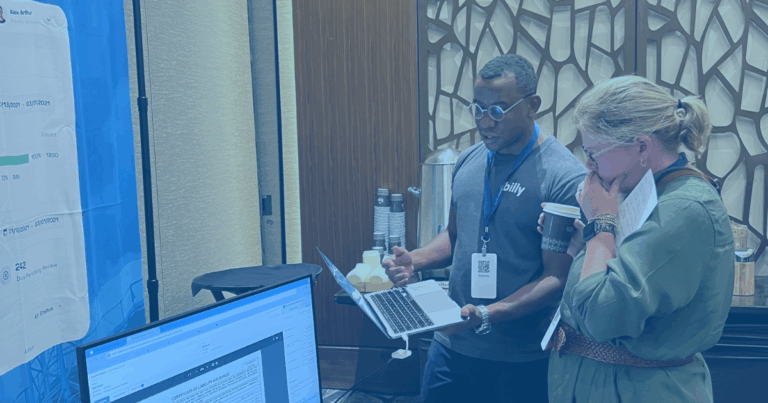Never one to go looking for the easy answers, billy co-founder and CEO Nyasha Gutsa has taken a winding path to get where he is — and to understand the power that he wields by emphasizing solving problems with technology. His story began in Harare, Zimbabwe, where he grew up. It has taken the combination of his experiences to fully grasp his own potential.
When he was younger, Nyasha first dreamed of becoming a pilot. The aviation magazines his father would give him as gifts provided all of the motivation and means that he needed to master reading and writing English. In his teenage years, he signed up for the air cadets, a program at his high school. He excelled in this program as well as in his day-to-day studies, earning a private scholarship to attend New York’s Fordham University, where he majored in accounting.
Although he committed himself to his studies, dreams of the sky were always in the back of his mind. He longed to venture up into the clouds, and soon after he arrived in the U.S., he got the chance to participate in a discovery flight alongside a flight instructor in Farmingdale, New York. His passion became clearer than it had ever been before — he knew that he was right where he belonged. In quick succession, he obtained his private pilot’s license, his instrument rating, his multiengine rating, his commercial pilot and flight instructor certifications, his airline transport pilot license, and his jet aircraft-type ratings.
In the meantime, Nyasha took on work as a software product manager. He worked with leading software teams at construction tech giants such as Procore, WeWork, and lease management startup Occupier. As busy as his work kept him, there was an idea building inside him.
This was the idea that would, in time, become billy.
Another Dream, Another Business
Nyasha and billy co-founder Grant Robbins spoke at length about the difficulties they encountered at their construction tech startup, Listo. There, they had thought their business concept was elegant and practical, equipping contractors with a tool to generate invoices and process payments. Because of some early stumbles, they pivoted Listo to insurance, intending to offer their software across all industries (beginning with construction given that it was the most familiar to them).
The problem they were solving was straightforward and based upon a complaint that Nyasha and Grant had heard often: Because hiring subcontractors required complex insurance exchanges across multiple systems, the process was inefficient for everyone involved and led to poor communication between contractors in construction, insurance brokers, and underwriters. The trails of paper, the three-ring binders, the outdated spreadsheets — these items were all creating costly, unnecessary friction, dumping substantial costs and risks on the construction companies.
Nyasha and Grant knew they could make a difference.
Growing, One Failure at a Time
Listo, as it turned out, was not the big break that Nyasha had hoped it would be. It took some more time for him to catch his bearings and to see fully what construction companies needed from him most. This was one of several critical lessons for entrepreneurs that Nyasha learned in the days leading up to the launch of billy.
Another was that to succeed as an entrepreneur and business leader, he had to make his own plan and live his life as he wanted — not as anyone else wanted. Many would have doubted him when he decided to give up his secure, comfortable paycheck for the vision he pursued by co-founding billy.
There are, in Nyasha’s own words, five more critical lessons for entrepreneurs hoping to replicate his results:
- Continuously reflect on the purpose of your venture in order to take smarter risks: You should know why you are doing what you are doing, whom you are doing it for, and most importantly, what problem you are solving.
- Get crystal clear about your quarterly goals: You should be able to accomplish one significant task so that you can use that as a sort of “catapult” to your goals in the next quarter.
- Keep your attention on your work: One method that has worked well for Nyasha is to arrange sticky notes in his living space so that he sees them constantly.
- Write down all of your ideas, even the ones that seem small: In this way, you create a running “to do” list of your goals and dreams.
- Fail more: The most successful business leaders and entrepreneurs recognize that failure is simply part of the process that leads to success.
By solving problems with technology for people, Nyasha has carved out his niche in the business world. He has thought through every one of his moves in order to mitigate his risks and understand his rewards, which was why there was never any doubt (in retrospect, of course!) that Nyasha was on the right path.
To learn more about how billy helps construction businesses, request a demo today.






